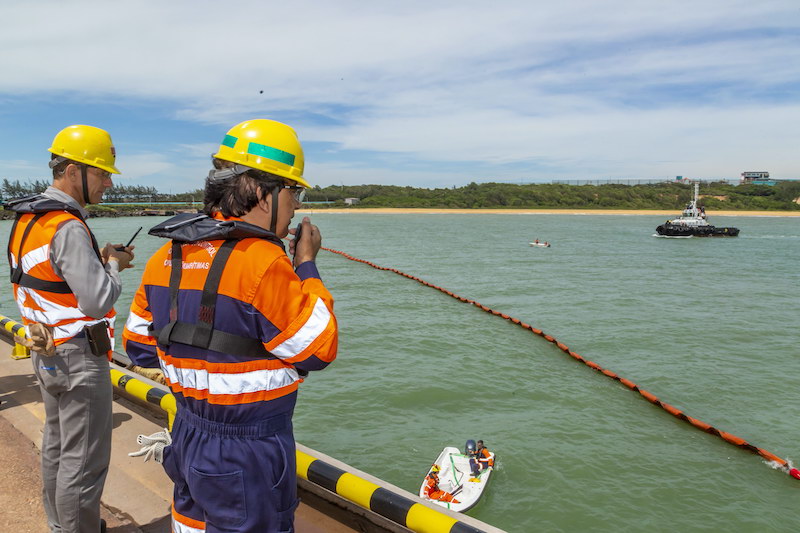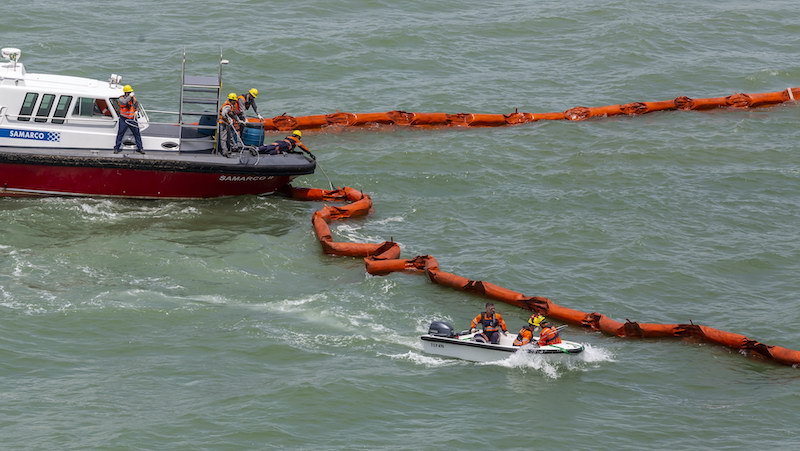13/12/2019

On Friday (12/13), Samarco held a mock drill at the “Ponta de Ubu” Maritime Terminal in Anchieta (ES) with employees and contractors so they know how to act in emergency situations, such as oil spill at sea. About 40 people participated in the drill, which is part of the company’s Port Operations Emergency Response Plan. Mock drills are important to promote a prevention culture and train teams to respond quickly to this type of occurrence.
During the action, oranges were thrown overboard to simulate a 300-liter oil slick generated by accidental spillage of a ship docked at the terminal. In the created scenario various equipment were used, including a tugboat, a speedboat, two motorized boats, floating containment barriers and barrels to collect the material thrown into the sea (oranges). The participants also participated in a drill of a situation where a marine animal covered in oil had to be rescued. It was collected by the internal team qualified to develop such activity.
Conducted since 2002, the mock drills identify and improve the techniques of the activity, such as the coordination, communication and, in the case of this exercise, the containment and collection of floating oil slick, explains the port manager Rodrigo Abreu. “With these actions, we can practice the coordination aspects of the Individual Emergency Plan, strengthen the integration between teams, contractors, regulators and communities, as well as promote the training and skills necessary to act in emergency situations”, Abreu said.
In addition to the participation of employees and contractors, the action was attended by the State Institute of Environment and Water Resources (IEMA) and the Institute of Research and Rehabilitation of Marine Animals (IPRAM) of Espirito Santo.

Prevention Culture
In June, another mock drill held at the “Ponta de Ubu” Maritime Terminal involved approximately 80 people. That day, there was also a simulation of a 300-liter oil slick in the sea originating from an accidental spill, as well as firefighting, rescue of injured on board, rescue of man overboard and rescue of aquatic wildlife.
“Preventive work exists to avoid similar occurrences in everyday life, but it is also essential that those involved are prepared and know how to act in emergency situations,” says Abreu.